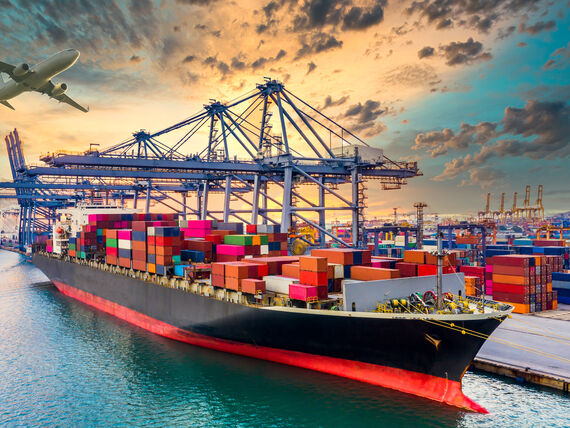Trendwatch: Port of Long Beach achieves clean air goals ahead of schedule; WTO in survival mode pushes back on splintering global trade; United States announces resolution of the outstanding WTO poultry dispute with India

Port of Long Beach achieves clean air goals ahead of schedule
According to recent research, air pollution emissions at the Port of Long Beach reduced in 2022 in all categories, confirming that the Californian port had accomplished all of the targets of the San Pedro Bay Ports Clean Air Action Plan a year ahead of schedule.
According to the Port's annual emissions inventory report, which was given to the Long Beach Board of Harbor Commissioners, diesel particulates are down 91% from 2005, nitrogen oxides are down 63%, and sulfur oxides are down 97%, all while cargo container capacity is up 36%.
WTO in survival mode pushes back on splintering global trade
Fragmentation of the global economy into separate blocs would be “extremely costly” and make the world a less stable place, the World Trade Organization said in a report published Tuesday.
The report, which notes that geopolitical tensions among major economies are beginning to affect trade flows, offers a counter argument to the ascendant view that the last quarter century of global economic integration was a mistake.
“The WTO is not perfect — far from it,” wrote WTO Director-General Ngozi Okonjo-Iweala. “But the case for strengthening the trading system is far stronger than the case for walking away from it.”
United States announces resolution of the outstanding WTO poultry dispute with India
United States Trade Representative Katherine Tai today announced that the United States and India have agreed to resolve their last outstanding dispute at the World Trade Organization, India — Measures Concerning the Importation of Certain Agricultural Products (DS 430). As part of the agreement, India also agreed to reduce tariffs on certain U.S. products, including frozen turkey, frozen duck, fresh blueberries and cranberries, frozen blueberries and cranberries, dried blueberries and cranberries, and processed blueberries and cranberries. These tariff cuts will expand economic opportunities for U.S. agricultural producers in a critical market and help bring more U.S. products to customers in India.
This announcement comes as President Biden met with Prime Minister Narendra Modi today in New Delhi, India for the G20 Leaders’ Summit. In August, Ambassador Tai met with India’s Minister of Commerce and Industry, Piyush Goyal, following the G20 Trade and Investment Ministers’ Meeting. During that meeting, Ambassador Tai and Minister Goyal discussed this WTO dispute and expressed their shared desire to reach a solution soon.
Drug Supply Chain Security Act enforcement delayed until 2024
Since its passage in November 2013, the Drug Supply Chain Security Act has drawn skepticism from drug makers and distributors worried about their ability to comply with the law’s new requirements regarding complete end-to-end supply chain visibility for products.
The extension was well received by industry stakeholders, who have voiced concerns over the their readiness to comply with the law’s mandate that drug manufacturers provide distributors with unit-level serialized products to legally move items through their supply chains. Companies expressed worry that communication issues and technology shortcomings in their supply chains could inhibit their ability to move products.
US envoy says UK should seek ‘smaller things,’ not major FTA
The UK should set its sights below a “grand trade deal” with the US, said Jane Hartley, Washington’s ambassador in London, citing the election cycle in both countries as a likely obstacle to broader ambitions.
“If you’re asking me my advice, I would look for smaller things as opposed to a grand trade deal, because we’re going to run out of time,” Hartley told Bloomberg TV on Wednesday. “There have been many meetings that have been positive especially on small business, professional accreditation, things like that. So I think, especially given the strength of the service sector here, I think there’s a lot that we could do.”
UN warns world is at a ‘critical moment’ to phase out fossil fuels
Governments are failing to cut greenhouse gas emissions fast enough to meet the goals of the Paris agreement and to stave off climate disaster, a major report by the UN has found.
According to The Guardian, meeting the goals will require “phasing out all unabated fossil fuels”, the report says.
There is a “rapidly narrowing window” for governments to move faster, according to the report, as global greenhouse gas emissions must peak by 2025 at the latest, and be rapidly reduced from there, to limit temperature rises to 1.5C above pre-industrial levels.
Emissions are still rising, however, and there is a gap of 20 to 23 gigatonnes of CO2 between the cuts needed by 2030.


